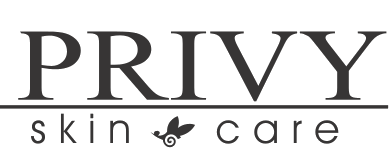What sets Privy Skin Care apart from other estheticians and spas? One important difference is our dedication to scrutinizing everything we put on your skin, and avoiding all unnecessary additives, fragrances and chemicals. All of the products we use have been thoroughly scrutinized and tested for your safety. But, you might ask, wouldn’t any commercially available product already be tested for safety by the FDA? Sadly, no. The FDA does not regulate skin care products, and has no authority to require recalls of harmful cosmetics. Most marketing claims made by skin care and cosmetic companies are also unregulated (meaning no one checks to make sure they are true), and descriptions such as “hypoallergenic” or “natural” can mean anything, or nothing at all. In fact most dermatologist agree that they have little or no medical meaning. While the European Union has banned more than 1,000 ingredients from use in cosmetics, the FDA has only prohibited a few.
Where do you start? It’s nearly impossible to avoid every single synthetic chemical, but you can do your part in limiting the amount of toxins your expose yourself to. Educate yourself and do your research before you buy. Take care of your body, it’s the only one you’re going to get!
Overwhelmed? Start small. Pick out a small list of ingredients you want to avoid, and eliminate them from your products. Once you’ve adjusted, and a few more ingredients to your list, until you’ve eliminated all the toxins that you want. Here’s a few to start with:
Fragrance
It may help sell products from face cream to laundry detergent, but do you know what’s in it? Federal law doesn’t require companies to list on product labels any of the chemicals in their fragrance mixture. Recent research from EWG and the Campaign for Safe Cosmetics found an average of 14 chemicals in 17 name brand fragrance products, none of them listed on the label. Fragrances can contain hormone disruptors and are among the top 5 allergens in the world, responsible for allergies, dermatitis, respiratory distress and potential effects on the reproductive system. Buy fragrance free wherever possible.
Hydroquinone
A skin bleaching chemical that can cause a skin disease called ochronosis, with blue-black lesions that in the worst cases become permanent black caviar-size bumps. In animal studies, hydroquinone has caused tumor development.
Parabens
Parabens (specifically Propyl-, Isopropyl-, Butyl-, and Isobutyl- parabens) are widely used preservatives that prevent the growth of bacteria, mold and yeast in cosmetic products. However, Parabens possess estrogen-mimicking properties that are associated with increased risk of breast cancer, and may disrupt the endocrine system and cause reproductive and developmental disorders. They can be found in makeup, body washes, deodorants, shampoos and facial cleansers.
What else can you do? If you’ve had an adverse reaction to a skin care or cosmetic product, speak up!
•Contact your doctor;
•Notify the FDA’s Center for Food Safety and Applied Nutrition (CFSAN) Adverse Event Reporting System (CAERS) by phone at 301-436-2405 or by email at CAERS@cfsan.fda.gov;
•File a complaint with the maker.
At Privy Skin Care, you can be assured that we take the utmost care in choosing our products. And we are always ready to help you re-evaluate your skin care routine for the better! Call or go online to schedule your appointment today.
702.496.2066
www.privyskincare.com




